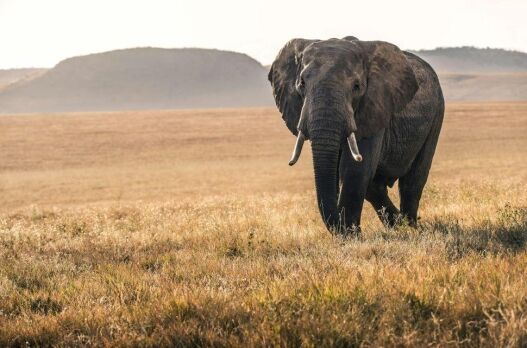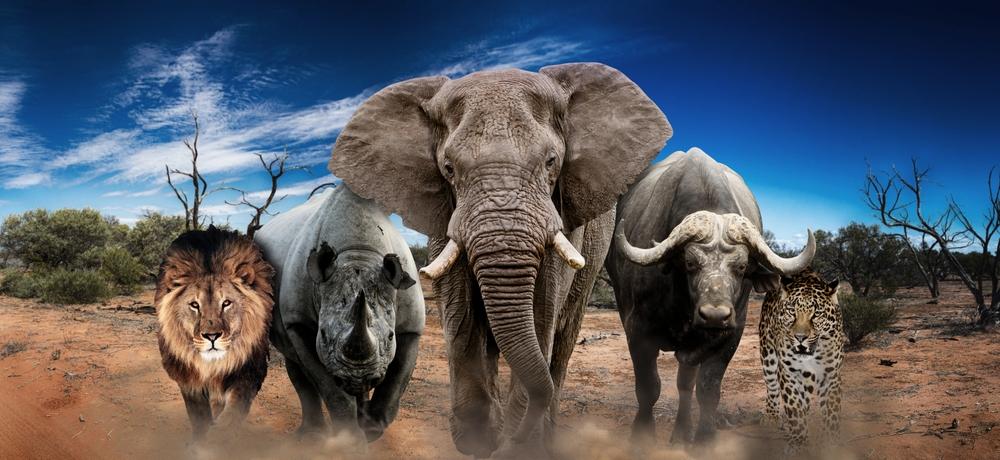
Botswana, renowned for hosting one of Africa's largest elephant populations, has captured global attention with its elephant-hunting policies. By examining Botswana's approach to elephant hunting, we can better understand its role in wildlife conservation and the socio-economic upliftment of local communities.
Gain a clear understanding of the regulations, impacts, and sustainability of elephant hunting in Botswana with our detailed FAQ guide. Discover how Botswana maintains the delicate balance between wildlife conservation and the development of local communities.
Hunting is no longer banned in Botswana. The government lifted the five-year hunting ban in 2019, allowing regulated hunting to resume. This move was aimed at balancing wildlife conservation with the economic needs of local communities.
In 2023, Botswana issued nearly 160 elephant hunting licenses under a structured and regulated framework. This included 72 licenses for non-citizens, allocated through a bidding process, and 86 licenses for locals, distributed via a nationwide raffle system. The decision followed the lifting of a five-year ban on elephant hunting in 2019, aimed at managing the country’s large elephant population of over 130,000 and reducing human-wildlife conflicts. The first hunting season session ran from September to November.
For 2024, Botswana plans to increase hunting quotas for elephants and other species to the maximum allowable limits. President Mokgweetsi Masisi announced during the State of the Nation Address (SONA) that this increase aims to enhance community benefits from sustainable wildlife utilization and mitigate ongoing human-wildlife conflicts.
In Botswana, obtaining a license to hunt elephants requires hunters to meet strict criteria designed to promote ethical and sustainable hunting practices. Applicants must demonstrate significant experience and competency in big game hunting to ensure they can conduct hunts safely and responsibly. Additionally, hunters must possess all necessary permits and documentation, including a valid hunting license issued in accordance with the available quota in specific hunting areas. For certain species like elephants, additional permits such as CITES (Convention on International Trade in Endangered Species of Wild Fauna and Flora) and TOPS (Threatened or Protected Species) permits are also required.
Compliance with Botswana’s hunting regulations, which mandate humane hunting practices and adherence to all legal requirements, is mandatory. Violations can result in heavy fines and penalties, underscoring the importance of responsible hunting practices. This comprehensive approach ensures that only qualified and responsible hunters participate, supporting long-term conservation goals and sustainable wildlife management.
In Botswana, elephant hunting is regulated by stringent rules to ensure ethical and sustainable practices. The hunting of female, young, and immature elephants is strictly prohibited to support the sustainability of the elephant population. While hunting from a vehicle is not allowed, vehicles can be used to reach the designated hunting area, provided they stay at least 200 meters away from any animal.
All non-resident hunters must hunt under the supervision of a licensed professional hunter, and the hunt must be conducted by a licensed outfitter. Hunters are only allowed to hunt animals for which they have received specific permits, and all hunts are subject to quota availability. Additionally, hunt permits must be issued before the hunt begins, and each hunting client must have a separate permit. These regulations, outlined in Botswana’s Wildlife Conservation and National Parks Act (Chapter 38:01), aim to balance wildlife conservation efforts with the socio-economic needs of local communities.
Non-compliance with Botswana’s hunting regulations results in severe penalties, including fines, revocation of hunting licenses, confiscation of equipment, and potential legal action. These strict measures are in place to ensure adherence to regulations and to promote sustainable and ethical hunting practices.
In Botswana, hunters are permitted to import up to three firearms, which can be either two rifles and one shotgun, or two shotguns and one rifle. The rifles must be of different calibres, and hunters can bring a maximum of 100 rounds of ammunition per firearm. The minimum calibre for hunting dangerous game, such as elephants, is .375. The ammunition must match the calibre of the firearms being imported. Importantly, semi-automatic, automatic, military-style firearms, and handguns are prohibited. For those who prefer not to bring their own firearms, camp rifles and ammunition are available for use at an additional cost.
Ethical considerations are paramount in Botswana’s hunting policies; hunters are expected to follow fair chase principles, ensure quick and humane kills, and respect both wildlife and the environment. Compliance with all legal requirements and guidelines is mandatory, reinforcing the ethical standards necessary for responsible hunting. This approach ensures that hunting is conducted ethically, supporting long-term conservation goals and the socio-economic needs of local communities.
Elephant hunting in Botswana plays a crucial role in conservation efforts and socio-economic development. The revenue generated from hunting licenses and associated fees is reinvested into various conservation programs, anti-poaching initiatives, and community development projects. This funding helps protect wildlife habitats and enhances the sustainability of conservation efforts, creating a positive feedback loop that benefits both elephants and local ecosystems. Additionally, elephant hunting provides significant socio-economic advantages for local communities by creating employment opportunities, boosting local businesses, and funding essential projects such as education, healthcare, and infrastructure development. These benefits improve the quality of life for residents in hunting areas, fostering a supportive environment for conservation activities..
Furthermore, controlled hunting serves as a population management tool that helps mitigate human-wildlife conflicts. By managing elephant numbers, Botswana protects agricultural crops and property from damage while providing a revenue stream for communities affected by such conflicts. This balanced approach addresses the needs of both wildlife and human populations, ensuring sustainable coexistence. Regular monitoring and strict enforcement of hunting regulations ensure that hunting practices do not negatively impact elephant populations, supporting long-term conservation goals and socio-economic needs.
Botswana is home to the largest elephant population in the world, with approximately 130,000 elephants. This significant number represents almost a third of Africa’s total elephant population. The high density of elephants in Botswana is due to successful conservation efforts and large, protected areas like the Okavango Delta and Chobe National Park. These regions provide vast habitats for elephants to thrive, contributing to Botswana’s reputation as a crucial sanctuary for these majestic animals.
Hunting is no longer banned in Botswana; the government lifted the five-year hunting ban in 2019 to balance wildlife conservation with local economic needs.
In 2023, Botswana issued nearly 160 elephant hunting licenses, split between non-citizens and locals through bidding and raffles. For 2024, the plan is to increase quotas to maximize community benefits and mitigate human-wildlife conflicts.
The hunting of female, young, and immature elephants is prohibited. Non-resident hunters must be supervised by licensed professionals, and all hunts must comply with strict regulations and quotas.
Revenue from hunting is reinvested into conservation and community projects, providing significant socio-economic benefits and helping to manage human-wildlife conflicts.
The hunting season runs from the beginning of April to the end of November, ensuring regulated and sustainable hunting practices.
Hunters must demonstrate significant experience, possess necessary permits, and comply with legal requirements. Additional permits like CITES and TOPS are required for certain species.
Hunters can import up to three firearms, with specific restrictions on calibres and ammunition types. Semi-automatic, automatic, military-style firearms, and handguns are prohibited.
Botswana employs a scientifically-informed quota system and mandates ethical hunting practices, including humane kills and respect for wildlife and the environment.
Botswana has the largest elephant population in the world, with approximately 130,000 elephants, nearly a third of Africa’s total elephant population.

Search from our range of Hunts across various popular destinations in Africa.
Find A Hunt